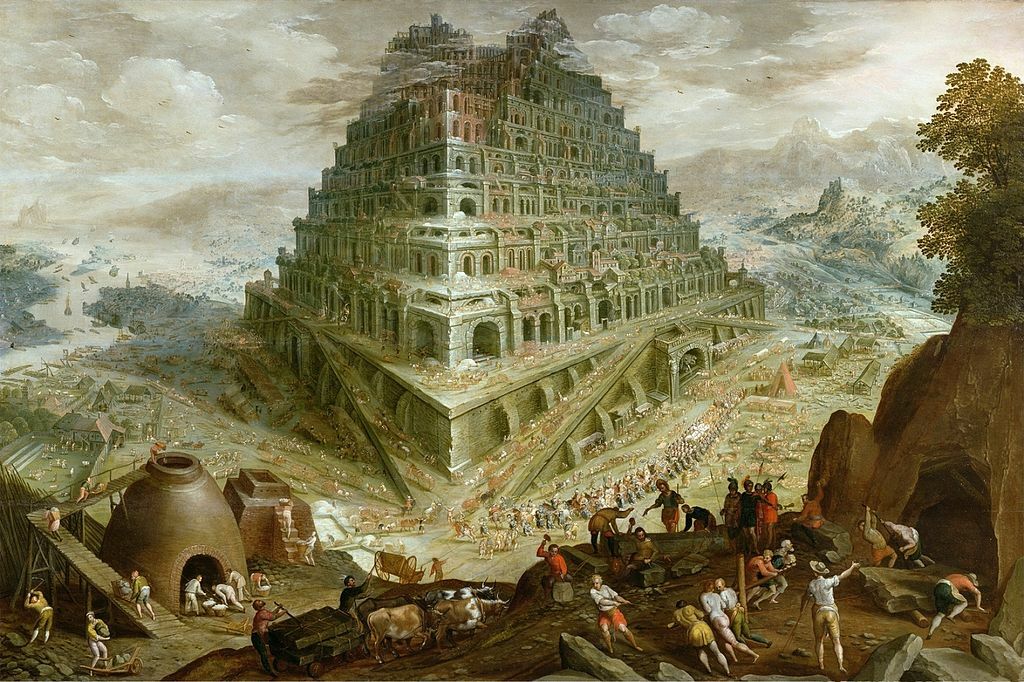When God decides to judge us for our sins, he will. It will be because he is ultimately merciful. If we continue to live hedonistic lives, much like the cities of Sodom and Gomorrah, refusing just as they did to repent and change our ways, ultimately, he will let us pay for our sins. He will give us what we want and much like many past civilizations, judgment will fall and though it will be very difficult on all the population, including the innocent, it will be mercy.
Why mercy? Because, ultimately, many will repent and God in turn will again bless them and cause them to prosper. He wants us to prosper. But moral failings and disobedience are not in our best interest. He knows what will hurt us because he created us.
Below is a compilation of the collapse of civilizations whose moral failings were a large contributor to their fall.
The Aztecs in Mesoamerica 1300-1521 were one of the most well-known examples of a society that practiced large-scale human sacrifice. The practice was a part of their religious beliefs to ensure the existence of the world. The idea was that human sacrifice was necessary to appease “their gods.” This was a practice that Yahweh, the God of the Israelites, found detestable.Fall: The Aztecs fell to The Spanish in 1521. Diseases like smallpox and the political alliances Cortes formed with indigenous groups who opposed the Aztec rule also afflicted them.
The Canaanite civilizations, including the Phoenicians, also practiced human sacrifice, including the ritual killing of children (sometimes referred to as “passing through the fire” to the god Moloch). Sexual rites and temple prostitution were also reported to be part of their religious practices.
Fall: Many Canaanite city-states were conquered by the Israelites, as described in the Bible, with their practices cited as reasons for divine judgment. The Phoenician city of Carthage, a powerful city-state, was eventually destroyed by Rome in 146 BCE after a series of conflicts known as the Punic Wars. While moral judgment is present in religious texts, the reasons for Carthage’s fall were complex and included military defeat, economic factors, and the strategic interests of Rome. However, the moral failings were evident.
The Roman Empire, particularly in its later stages, is often depicted as a society marked by moral excess, including widespread slavery, gladiatorial combat (which involved the killing of slaves and prisoners for public entertainment), and perceived sexual immorality and decadence. Historical narratives often focus on the lavish lifestyles of the elite, political corruption, and the moral decline of Roman society as contributing factors to its eventual fall.
Fall: The Western Roman Empire fell in 476 CE, primarily due to a combination of internal weaknesses (economic troubles, military defeats, political corruption) and external pressures (barbarian invasions, such as those by the Visigoths, Vandals, and Huns). While moral decline is often cited in historical and religious texts as a factor in Rome’s fall, it was brought about by a complex set of socio-political and economic reasons.
The Maya civilization, particularly in the Classic period (c. 250–900 CE), practiced human sacrifice as part of their religious rituals to appease their gods and ensure agricultural fertility, among other reasons. Additionally, internecine warfare among Maya city-states may have involved ritual killings and bloodletting practices.
Fall: The collapse of the southern lowland a combination of factors brought Maya city-states about, including environmental degradation, drought, overpopulation, warfare, and political instability. Human sacrifice and warfare may have played a role in societal stress combined with other factors brought down their government.
The Inca civilization (c. 1400–1533 CE) practiced human sacrifice (known as “capacocha”) in specific contexts, such as during times of crisis or in response to natural disasters. Children and young adults were often sacrificed to appease their gods, particularly on mountaintops.
Fall: The Inca Empire fell to Spanish conquistadors led by Francisco Pizarro in 1533. The fall was largely due to the Spanish’s military advantage, diseases such as smallpox that devastated the indigenous population, and internal divisions within the Inca Empire. While human sacrifice was part of Inca religious practice, it was not the direct cause of their collapse.
Fall: Carthage was destroyed by Rome at the end of the Third Punic War in 146 BCE. The primary reasons for its fall were strategic and military: Rome’s desire to eliminate a rival power and gain control over Mediterranean trade routes. The moral condemnation of child sacrifice was used in Roman propaganda against Carthage but was not the primary reason for its destruction.
Minoan Civilization evidence suggests that the Minoans on Crete (c. 3000–1450 BCE) practiced human sacrifice, particularly during times of natural disasters, as well as rituals that could have included sexual elements.
Fall: The Minoan civilization is believed to have declined due to a combination of natural disasters (such as the volcanic eruption on the nearby island of Thera around 1600 BCE), earthquakes, and invasions by the Mycenaeans. The role of any possible moral practices in their decline is speculative.
While some historical or religious interpretations suggest that moral failures, such as human sacrifice, slavery, and sexual immorality, contributed to the downfall of various civilizations, these interpretations are often intertwined with other complex factors.
What do we have in common with these?
United States of America has performed 63 million abortions since 1973 and that is just the legal abortions. Does God count that as human sacrifice? Does he hate it? The Bible says to choose life. Moses said in Deuteronomy 30:19 NIV “This day I call the heavens and the earth as witnesses against you that I have set before you life and death, blessings and curses. Now choose life, so that you and your children may live.”
The phrase “choose life” is often interpreted not only as a call to follow God’s moral and spiritual path but also as an encouragement to value and honor life in all its forms.
Biblical Examples: Moral decline always has caused judgment to fall.
In Genesis 6, the Bible describes a world filled with violence, corruption, and widespread wickedness. It states that “every inclination of the thoughts of the human heart was only evil all the time” (Genesis 6:5).
Judgment: God decided to judge humanity by sending a great flood to destroy all life, sparing only Noah, his family, and a select number of animals. Noah was chosen because he was found to be righteous in a world filled with moral corruption (Genesis 6:9).
Sodom and Gomorrah are depicted as cities characterized by extreme wickedness, including sexual immorality, pride, neglect of the poor, and general lawlessness (Genesis 18:20; Ezekiel 16:49-50).
Judgment: God judged these cities by sending “brimstone and fire” from heaven to destroy them. Only Lot, his wife, and daughters were allowed to escape, though Lot’s wife was turned into a pillar of salt for looking back (Genesis 19:24-26).
In Babel, after the Flood, humanity decided to build a city and a tower “with its top in the heavens” to make a name for themselves and to prevent being scattered across the earth, directly disobeying God’s command to “fill the earth” (Genesis 9:1; Genesis 11:4).
Judgment: God judged this act of pride and defiance by confusing their language, which caused the people to be scattered over the face of the earth, thus thwarting their plans (Genesis 11:7-9).
The Canaanite nations were judged for practices that included idolatry, child sacrifice, sexual immorality, and other forms of wickedness. Leviticus 18 describes various “detestable practices” that were common among the Canaanites (Leviticus 18:21-30).
Judgment: God commanded the Israelites to conquer Canaan and destroy these nations to cleanse the land of their moral corruption. This conquest was portrayed as both a divine judgment against the Canaanites and a fulfillment of God’s promise to the Israelites (Deuteronomy 9:4-5).
 These examples from the Bible illustrate how moral decline, according to biblical teaching, often leads to divine judgment. The reasons for judgment typically involve actions that violate God’s commandments or moral laws, such as idolatry, sexual immorality, injustice, violence, deceit, and lack of faith. In each case, the judgment serves both as a punishment for disobedience and as a call to repentance and a return to righteous living. Let us all Repent.
These examples from the Bible illustrate how moral decline, according to biblical teaching, often leads to divine judgment. The reasons for judgment typically involve actions that violate God’s commandments or moral laws, such as idolatry, sexual immorality, injustice, violence, deceit, and lack of faith. In each case, the judgment serves both as a punishment for disobedience and as a call to repentance and a return to righteous living. Let us all Repent.






No comments:
Post a Comment